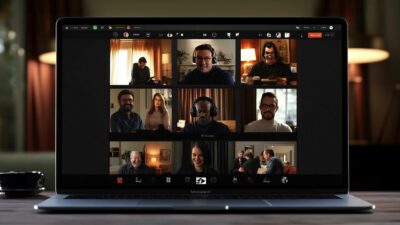 CBS has agreed to pay $300,000 to settle a license challenge to KUTV(TV) Salt Lake City over its airing of Without a Trace.
CBS has agreed to pay $300,000 to settle a license challenge to KUTV(TV) Salt Lake City over its airing of Without a Trace.
CBS admitted it had “inadvertently” failed to comply with an earlier consent decree wiping out a raft of indecency complaints including against the same episode of the CBS drama. According to that decree, CBS was supposed to launch an investigation and suspend employees if the FCC concluded a broadcast had been indecent, which it did to the tune of a record $3.6 million fine against CBS’ owned stations for the repeat airing of Without a Trace.
The company has now promised to take steps going forward to insure compliance with the original consent decree.
The consent decree entered into with the FCC does not wipe away that proposed $3.6 million fine. It applies to KUTV and to a license challenge filed by the Parents Television Council, as well as to any other CBS stations that similarly did not take remedial actions.
That decree paves the way for CBS to sell KUTV and a number of other stations to Cerberus Capital. In fact, the FCC took care of three CBS-related issues at once Friday, announcing the consent decree, the station’s license renewal and its approval of the sale of a bunch of CBS-related radio stations to Entercom.

CBS had initially contended they had already done enough in response to the commission’s raised ire—and proposed record $3.6 million fine—for its 2004 airing of an episode of Without a Trace that contained a teen orgy scene.
CBS was responding to questions posed by the FCC in June after the Parents Television Council challenged the license of KUTV in August 2006. PTC was mad that CBS had aired the episode only weeks after signing the consent decree that included admission that some of the shows it had aired–CBS did not specify–had been indecent.
In a letter to the FCC amending its request for a license renewal for KUTV, the network had explained its inaction by stating that the proposed fine was against a scripted drama, rather than a live, unscripted show like a morning radio program or awards show that an employee would need to bleep or edit. And if the FCC disagreed with the interpretation, CBS’ failure had been at most an “unintended omission” in an otherwise extensive, good-faith effort to comply with the agreement that included installing editing systems at radio stations, audio and video delays at TV stations, and training staffers about compliance with indecency laws.
[Read: BroadcastingCable]

Frank Wilson is a retired teacher with over 30 years of combined experience in the education, small business technology, and real estate business. He now blogs as a hobby and spends most days tinkering with old computers. Wilson is passionate about tech, enjoys fishing, and loves drinking beer.











 Butterfly Living Room Flyer: The World’s Smallest Drone Model Airplane
Butterfly Living Room Flyer: The World’s Smallest Drone Model Airplane